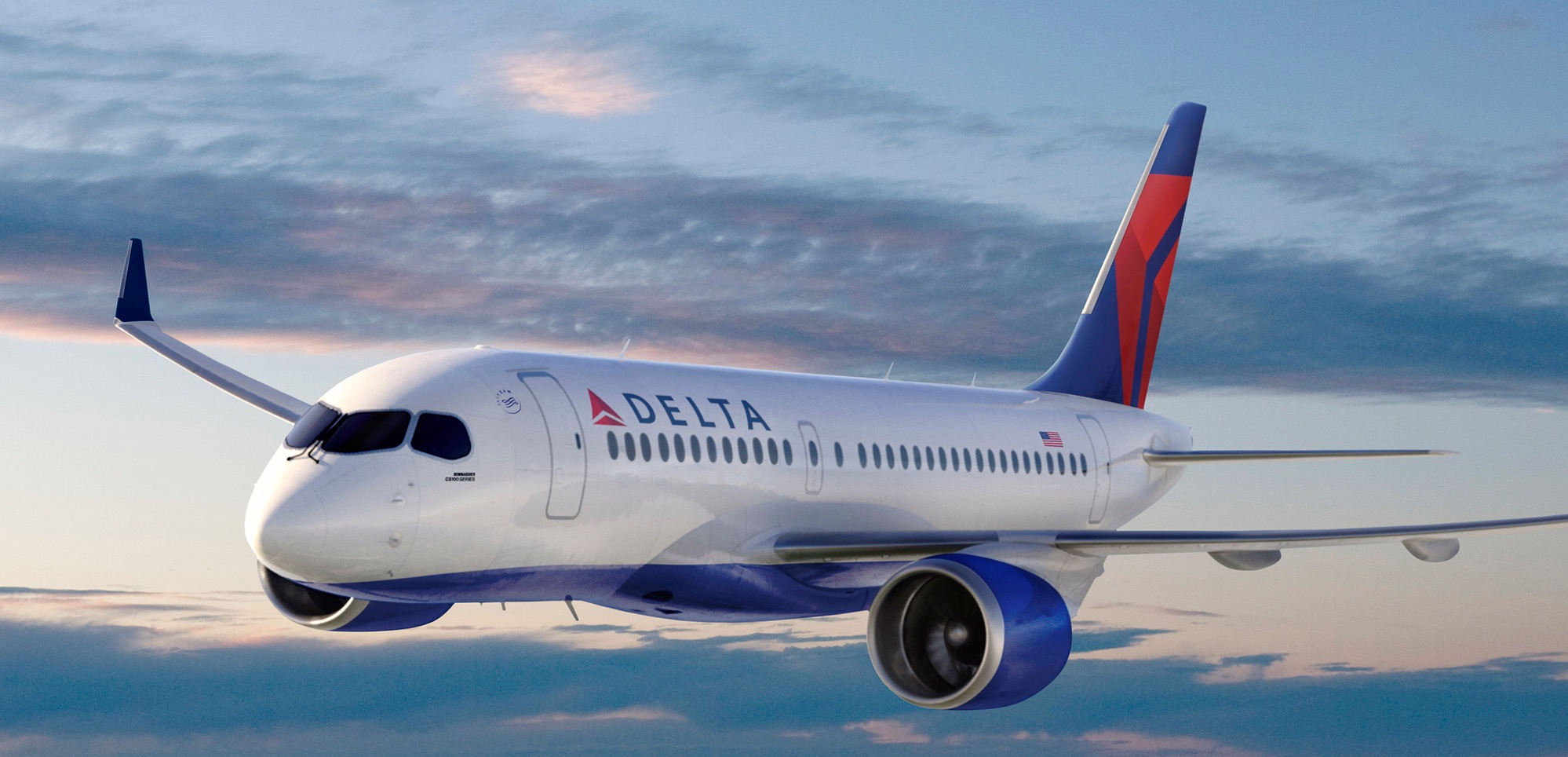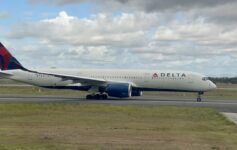Delta earned over $5 billion in pre-tax profit in 2018 and did not pay a dime in federal income tax. And that’s exactly how the program is supposed to work according to Delta’s CEO.
One last snippet from the recent Delta CEO Ed Bastian interview with Marketplace. You can read about Bastian criticizing United CEO Oscar Munoz here. Today’s topic is corporate taxes.
Kai Ryssdal: With Delta doing so well, I’m sure you’ve seen the stories in the paper the last couple of days about corporate taxes and how much tax companies are paying. Delta is not paying a lot. Is that right, do you think?
Bastian: Absolutely. We’re following the tax code. Delta, as you recall, lost a lot of money. We lost almost $20 billion post-9/11. We went through some very difficult economies over the last 20 years. And so, what we’re doing is we’re able to offset the losses of those years against the profits of today. We have probably only have about another year or so left in those losses, and then at that point then we should start being a cash taxpayer once again. But, you know, these are hard-earned losses, I would say, that we utilize, and our people had real pain attached to them. I am proud that we’ve got the best profit-sharing plan in corporate America for our employees. They get 15% of the profits of the company; $1.3 billion we paid last year, so yeah, I think we’re doing our share.
Fair Share?
Sounds reasonable enough, right? Delta lost billions and the U.S. tax code allows Delta to slowly offset that loss against future gains. Under this policy, Delta has not paid federal taxes since 2011.
But it’s more than just offsetting old losses. Per the Institute on Taxation and Economic Policy,
Delta Airlines…used accelerated depreciation, a tax break that allows companies to write off the cost of their capital investments much faster than these investments wear out, to dramatically reduce their tax rates.
The goal behind accelerated depreciation is to encourage business investment. You could look at LAX’s massive $2BN investment as the fruit of that tax advantage. Under the 2017 Tax Cuts and Jobs Act, corporations can deduct the entire cost of a capital investment during the first year. That essentially discounts investment, making it more attractive.
CONCLUSION
It is interesting to me that Delta was able to shift its pilot pension obligations to the Pension Benefit Guaranty Corporation (PBGC) while under bankruptcy protection, but now reaps the gains of its years of losses post 9/11 and during the Great Recession. While the general concept of offsetting losses is a critical and positive function of U.S. tax code, if Delta wants to be a good corporate citizen I hope it will use its profits to pay pilots what it promised instead of shifting that burden onto the wider net of the PBGC. The same goes for American and United.
image: Delta





of course they don’t know how to act like good corporate citizens. the one that rants about state pot of gold backing ME3 is the one having no qualms JV-ing with *multiple* Queens of bailout – previously Alitalia, Jet Airways (ironically, bailed out previously by none other than Etihad before it finally failed), and Virgin Australia, a musical chair of next owner bailing out the bad share purchase decision of the previous owner to a point i’ve lost track of VA’s true ownership (if the current snapshot is stable at all).
Following in the footsteps of other liberal heroes like Tim Cook and Jeff Bezos in advocating for massive government reach while contributing zero to paying for all their handouts.
the investors post bankruptcy invested on the basis that pension liability had been eliminated – you’d never get companies out of bankruptcy if new money never had certainty they’d have no exposure to resolved past liabilities
Unless things have changed…I thought the Pension Benefit Guarantee Corporation is not funded by taxpayers. If true taxpayers are not paying Delta’s pension obligations.
What about the regular guy? Let’s say for 15 years of my career, I made under $75k a year. Now if I make $150k a year, can I carry forward the gap from all those years and pay in that lower bracket? Of course not, the system only benefits corporations….
Thats not what this is. An equivalent analogy would be if you earned $75,000 and used $75,000 for your lifestyle, (although in this case, its paying employees, shareholders and funding the running of an airline that provides transportation to millions) and suddenly due to a completely shit incident, like say 9/11, you still had to keep paying out $75,000 or even more since costs went up, but you were making a lot less, and in a lot of ways it would make sense to declare bankruptcy and cut your losses but USG doesn’t want that. Fast forward ten years to where you are finally back to making $75,000, or even $100,000 and you want to offset the years of not paying taxes when your life was operating at a loss by taking that as a credit now that you are profitable. I mean there really is no analogy that works since you aren’t a corporation providing transportation and jobs to millions. But the point is the government allows this to keep those businesses going and provide incentive for them to keep going. That’s my take at least and I am certainly not an economic expert so I am happy to stand corrected.
Freakin’ amazing analogy. Also, loved the term “completely shit incident”. I wish I could “thumbs up” this comment.
Lol same, that was a very nice way of something that can’t really be explained.
Corporate tax accountant here. That’s a pretty good way of describing the situation in a simple to digest manner.
A couple of things to supplement, they are using a “tax loss carryover forward” which is a well known tax planning strategy. Take prior years’ losses against current earnings so the taxes due are negligible. Also, regarding the deduction for capital spending, this simply allows them to take the reduced tax burden in the current year, but they still pay tax in the future. This practice defers taxes, not eliminates them.
To say that Delta’s not paying taxes is a bit misleading and to suggest that it’s un-American to use every advantage of the tax code is absurd. Delta paid out profit share to employees (most of whom took pay and benefit cuts during the GFC) in the amount of $1.3bn in 2018. All of those shared profits were then taxed at ordinary income rates based on an average non-pilot salary of $44k and pilots of $144k of a blended 24% marginal federal rate or $312m, not counting state income taxes. Delta also paid out $857m in ordinary dividends that were taxed at 22% at the federal level or $188m in taxes. So Delta’s profits generated at least $500m in Federal Tax Revenue.
At least Delta is distributing these dollars into the economy instead of building a cash hoard like some other non-taxpaying corporations.
Friendly reminder to anyone upset at Delta that tax incidence ≠ tax burden. Corporate taxes are paid one way or another by customers or shareholders (indeed, this is why many think the corporate profit tax rate should be 0% since they are eventually taxed again when shareholders incur a capital gain).
You could argue that the benefits of Delta’s current low tax rate are not distributed amongst an even cross-section of the American populace, but that’s not really anyone’s fault…
By that standard, I shouldn’t pay sales tax for consuming a product either, if my purchase is directly contribution to the generation of downstream tax revenue.
You are welcome to go ahead and try it but you won’t be happy with the results. The tax code is not a standard, rather, a law(s). But I’m not here to claim it is a good law—we have so many swamp creatures running this country on both sides of the aisle is a miracle it isn’t worse.
I’d tell you that if you don’t like it (as inferred by your comment) change it, but I fully recognize that would be a foolish statement and I make plenty of those without putting it out on the internet, so I guess Im trying to say that by pointing out that Delta isn’t in violation of the tax code (I guess they aren’t) Steve Schow is merely saying that Delta is operating with the tax code that they are legally bound by.
Hmmm… QR, EK, EY recieving subsidies to help with losses? Not cool Me receiving tax credits to offset losses? Cool with me!
Tax the rich! And yes I’m willing to pay more as just a top 10%er! The rich enjoy the most benefits of our society and should pay accordingly
Seriously the country needs to wean ourselves off the economy’s sugar high on deficit spending and low interest rates without causing a recession. The candidate that has the best feasible plan to do this gets my vote
+ Delta, and American need to stop illegally (my interpretation of the law, and yes I graduated from law school) interfering with workers right to organize and bargain collectively
Bill, in all fairness “workers rights” as you suggest with your neo-Marxist comment have generally led to bankruptcy…AA, USAir (x2), Northwest, United…and if we go to the auto sector GM and Chrysler. They’ve also led to worse customer service. Delta’s non-union cabin crews are the best of the US 3 and have repeatedly voted down unionization, but the unions persist as the need to broaden the base of their pyramid (scheme). Let’s have a free market where good service is rewarded with higher prices and more profits for their employees and (undertaxed) shareholders.
Some of us do NOT want a union. We saw what the IAM did for Northwest workers. Not a dayum thing.
It’s Delta. What did you expect, integrity?
Taxes pay for the war on drugs, infringement of right to free speech, freedom of association, freedom of body and property, pays for government funded abortions and the military industrial complex. There is nothing honorable, moral or acceptable about government using force or the threat of force to take people’s money whether individual or corporation to pay for things people don’t want. In my book anytime someone pays less taxes that’s a good thing. In this case with Delta is not that they don’t pay taxes but they had huge loses which they are able to deduct income against.
They also paid for the infrastructure that made America great. No coincidence that as the rich and the companies started paying less, the USA has seen a deterioration in its infrastructure
Defined benefit pension plan sponsors pay premiums to fund the PBGC. The PBGC is not taxpayer funded.
How does a company “reap the gains of years of losses?” Are you saying you can get rich by losing money year after year? You must have gotten your business education at Trump University. If that is the case, why are you writing headlines as if you were tutored by the most learned Prof. Ocasio-Cortez?
Looks suspiciously like a state subsidy….
Please do a little research before writing an article. Delta did not shift its pension obligations to the Pension Benefit Guaranty Corporation (PBGC) . The Delta pilots union board ALPA voted to move their portion of the pilots pension plan out of Delta to the PBGC believing Delta would not recover from bankruptcy and was willing to take what money they could at that time. The remaining Delta workforce still had their pension plans in place and are receiving the benefits. All Delta pensions were frozen in 2005 – meaning whatever benefits you earned up to 2005 are still paid.
What happened when pilots used the PBGC and wished to move the pensions back to Delta? What did Delta say?